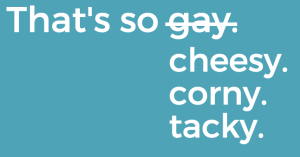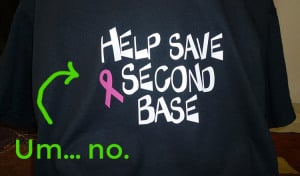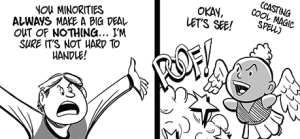“Ban the box” is the movement that removes the box asking about a person’s conviction history.
Dena Takruri: So when a person is applying for a job now, it’s typical for there to be a box that says, “Have you ever been convicted of a felony?”
Manuel La Fontaine: Well, there’s been a movement to eradicate that box, to eliminate that box, and we’re not asking to overall completely not ask that question, we’re saying put it later on in the process. Once a person has been found eligible and qualified, before they offer them the job, they could inquire about that, and the person has the right to be able to explain. The challenge is when you submit an application, or you are asking in any interview about any conviction history, then what that normally triggers behind the stigma associated behind fear that the person, if they’re not trained, they’re going to discriminate. That application might not make it past that day.
Dena: So the first time you went to prison, you were only 19-years-old. What was going on in your life at that time, and how were those factors similar for not just yourself, but for other young men of color?
Manuel: Growing up here in America, many of us grew up with a lot of self-hate, and that means that we internalized a lot of the violence we see on TV, in the community, and our homes, and so for many of us, it was growing up and having to deal with that rage. What do we do with that rage? Most of the time, we’re trying to find ways to do it, and the systems of oppression – the racism we experience, I experience, in school, the not being able to speak proper English initially, the lisp issue I had growing up – forced many of us to support each other, and in doing so, without a critical consciousness, forced us to get into what they call “gangs.”
The reality, the conditions, that we live under forces many of us to live in the informal economy, in the informal market, that makes us do crimes we don’t have to do.
Dena: Are you comfortable saying what that crime was?
Manuel: Not necessarily. I’d rather focus on the message that I have, and why should we focus on what’s passed? Your whole character is not measured by one action or reaction, but rather by the overall character.
Dena: Somebody might say that there are, you know, frequent incidences of people exiting prison and then committing a crime and then going right back to prison. So from the employer’s perspective, why should they take that risk?
Manuel: The question that we normally ask most people is, when is enough enough? You know, if we got sentenced at 19, like in my case, 20-years-old, and I’m 36 now, why should I be sentenced 16 years later, be under the same sentence of not being able to sustain my family? And then before, to live off the informal economy, that comes with all the madness you hear on the news, and this should always be a nexus between the job responsibility and the actual conviction. So if I got convicted of DUI back in ’96, and all of a sudden I’m applying now in 2015 for a job that doesn’t require me driving, that conviction should not be used to judge me in a penniless job, because I have all the qualifications with other levels that does allow me to work there.




















